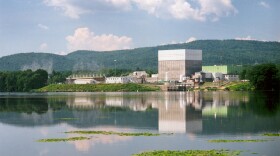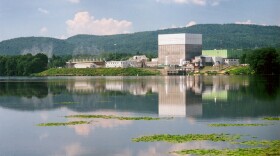The Vermont Nuclear Decommissioning Citizens Advisory Panel Federal Nuclear Waste Policy Committee met recently to hear about federal efforts to store spent nuclear fuel.
In 1982 a federal law was passed mandating that a geologic repository for high-level nuclear waste be constructed. Yucca Mountain in Nevada was the chosen site, but it has never opened.
The Vermont Nuclear Waste Policy panel chair Lissa Weinmann noted that they have raised concerns for several years that there is still no national storage facility for civilian nuclear waste in the country.
“The existing Nuclear Waste Policy Act calls for establishment and actual progress to be made on a permanent disposal site before any consolidated interim storage facility can be sited. Therefore, everyone is in general agreement that in order to proceed on these plans there needs to be a change in the Nuclear Waste Policy Act in federal law,” Weinmann noted. “So while the siting and design of such a facility can actually move forward the actual implementation of this process, under current law, is actually disputed and not allowed.”
The Department of Energy is funding a project to find communities willing to host interim storage of spent nuclear fuel. Vermont’s Decommissioning Panel invited members of the Consent-Based Siting Consortia to speak about the effort.
The Keystone Policy Center’s Social and Environmental Research Institute Senior Research Fellow Tom Webler reported that the 13 members of the consortium are engaging with communities about the potential to store spent nuclear fuel.
“We’re funded with $2 million each by DOE to basically go out and talk to communities and find out what they want to see in a consent-based siting process to locate these consolidated interim storage facilities,” explained Webler. “So sometime down the road DOE will start a process of asking communities to volunteer hosting a consolidated interim storage facility. And the idea is that the waste would be held there temporarily while the nation could somehow figure out how to find several deep geological repositories.”
The Good Energy Collective is leading community engagement for the project. Senior Policy Analyst Cleo Schroer explained that there are about 90 thousand metric tons of spent nuclear fuel currently being stored at reactor sites.
“The highest concentration of it is in Illinois, Pennsylvania, South Carolina. But it’s kind of spread out across the rest of the country as well and it’s stored at the reactor sites which it was created at, which includes Vermont Yankee,” reported Schroer. “The biggest problem with how we’re managing things today is not as much on the safety side as it is on the long-term management side. So first and foremost, the communities that are hosting this waste they did not agree to store that fuel long-term. It was supposed to be taken away as written in the Nuclear Waste Policy Act in the late 90’s and the federal government has been failing to meet that responsibility.”
Schroer added they have heard a common thread of mistrust that could challenge any consent-based siting.
“There is a deep seated level of distrust in the Department of Energy specifically on this issue that they’ve failed to deliver on for decades.”
The DOE did not immediately respond to a request for comment.
Members of the Consent-Based Siting Consortium said the timeline for an interim storage site could see construction begin in 10 to 15 years depending on negotiations with a willing community.
A permanent repository is dependent on when and if Congress amends the Nuclear Waste Policy Act.






